Shards
those aren't stars those are shards
of my mother's bone
From Jay Hopler’s poem, Family Astrology,
published in his book Still Life, 2022
of my mother's bone
From Jay Hopler’s poem, Family Astrology,
published in his book Still Life, 2022
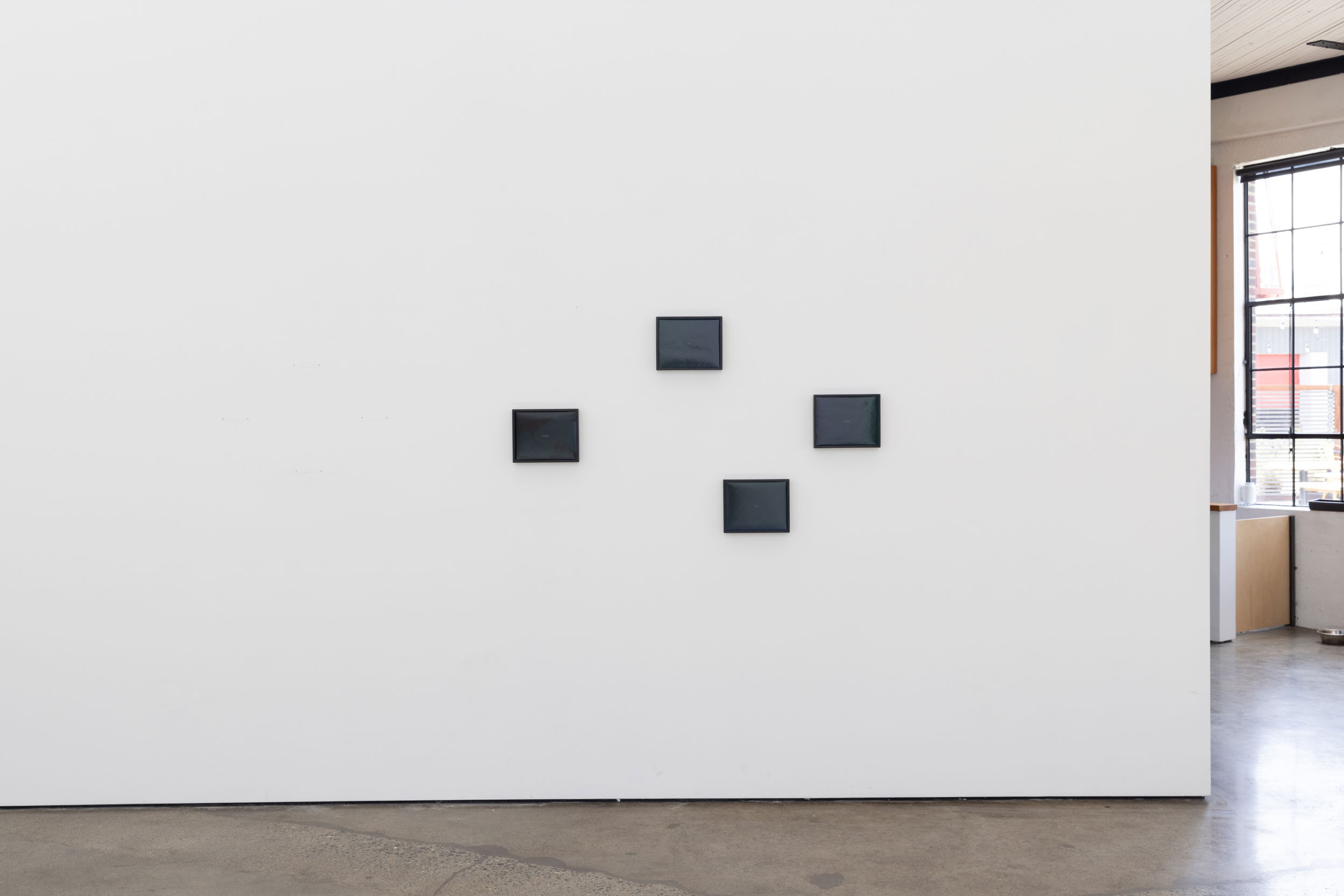
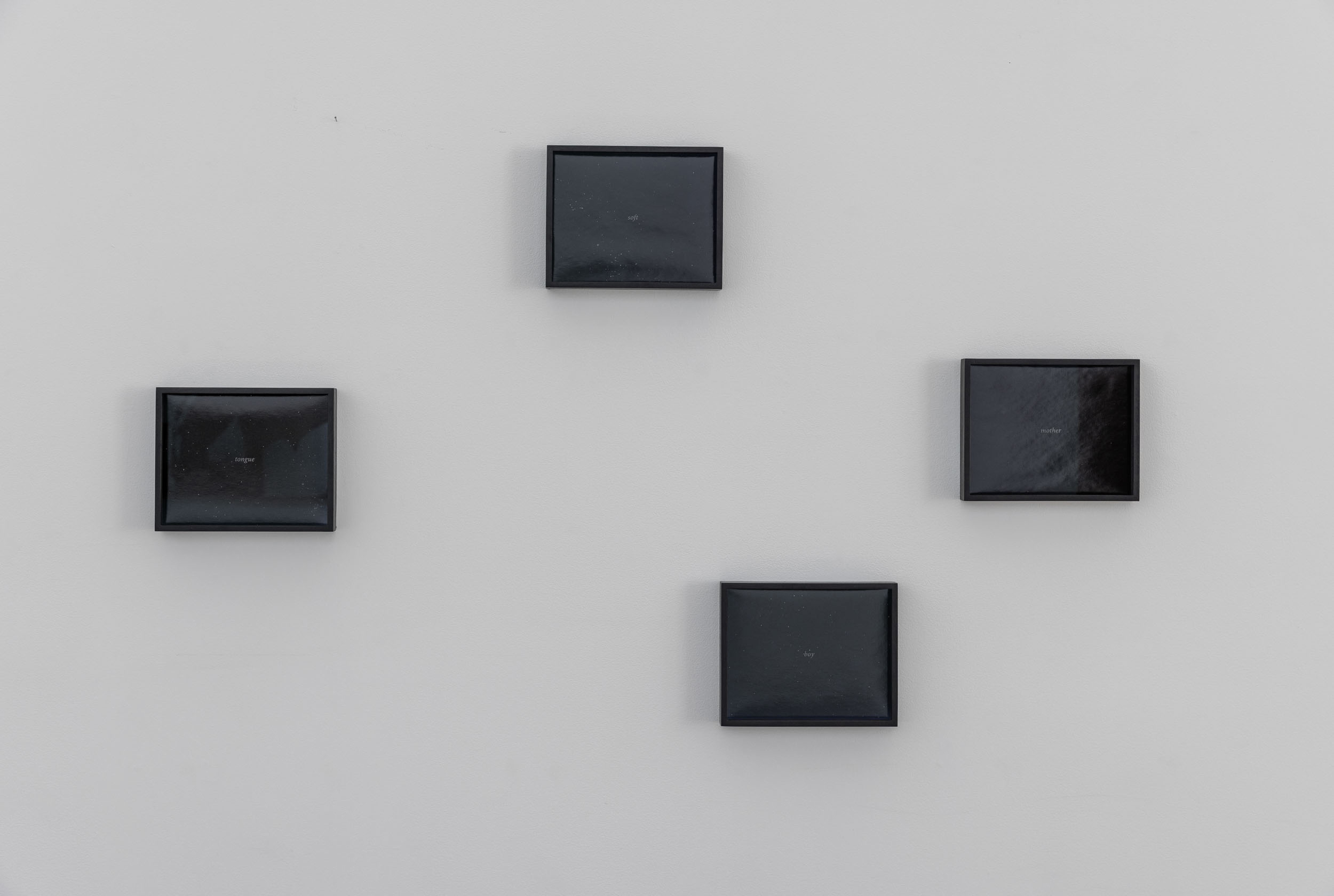
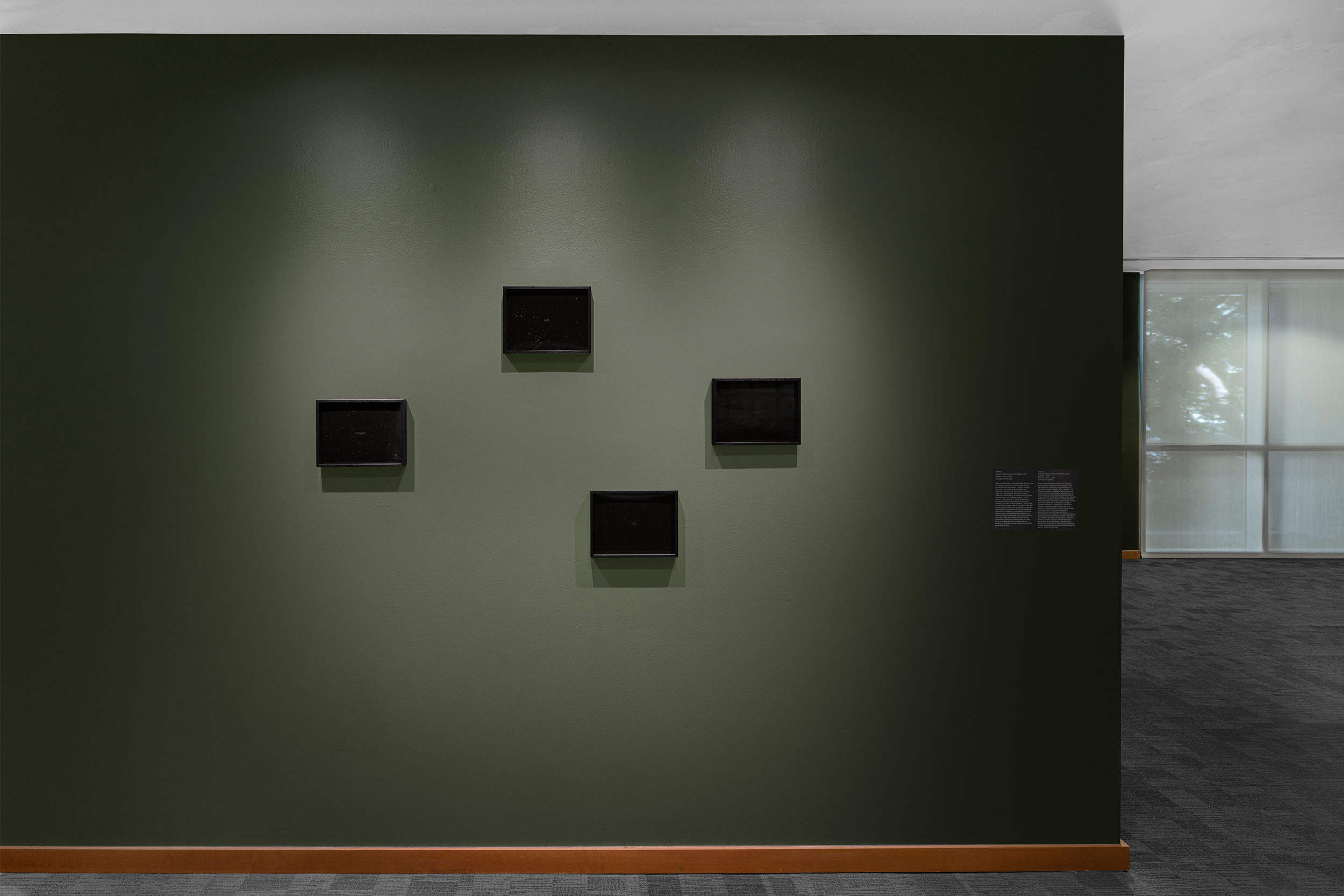
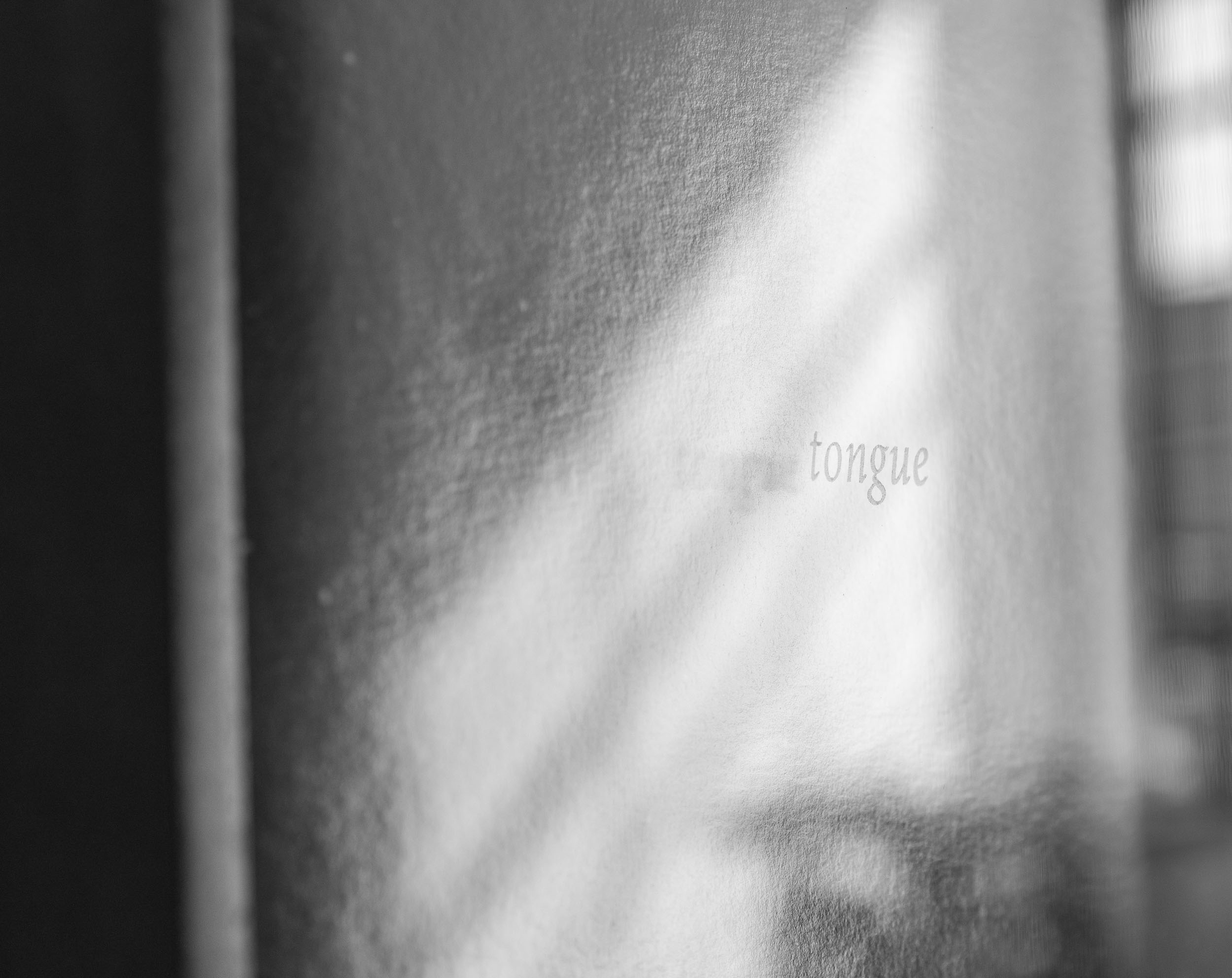
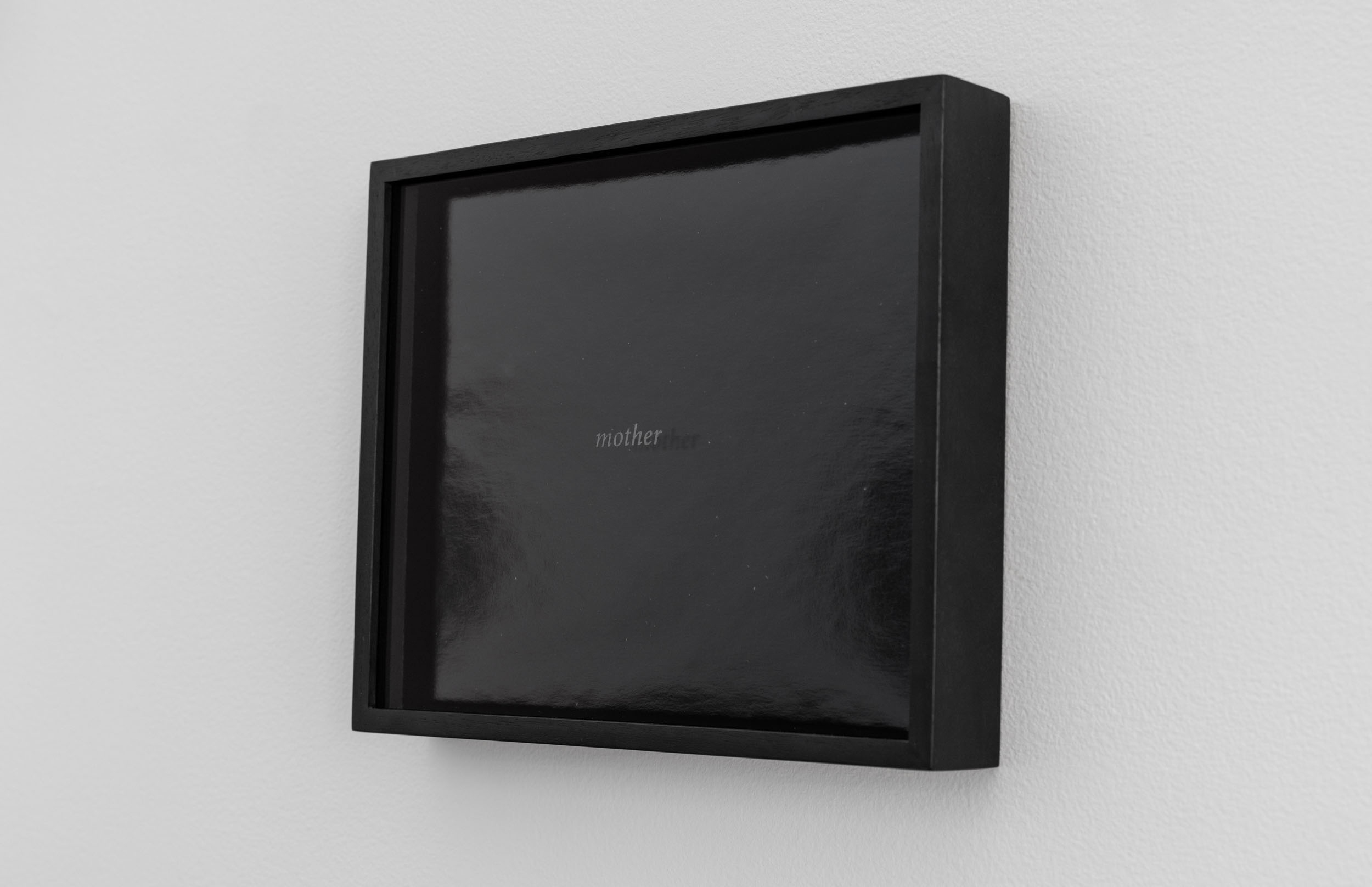
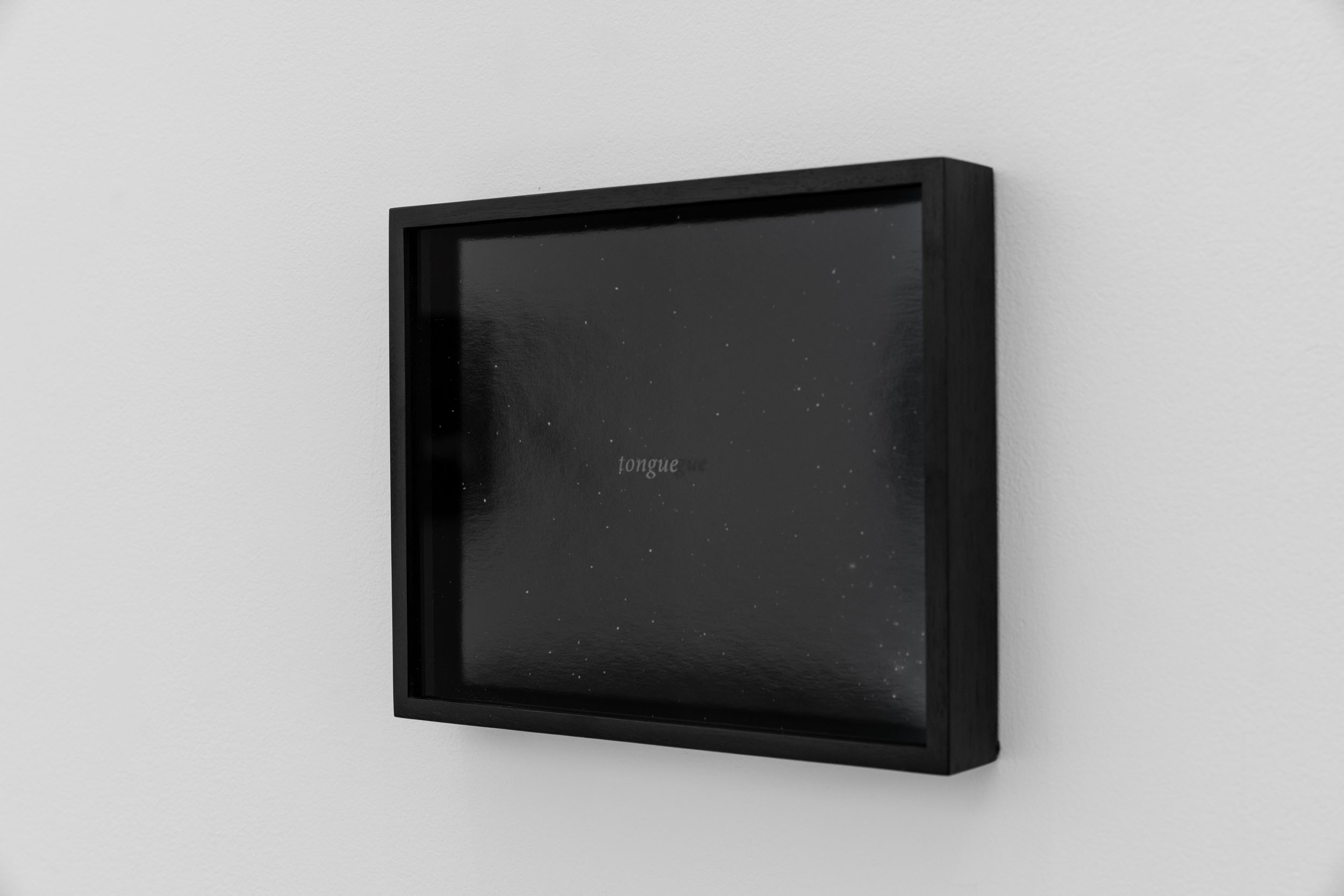
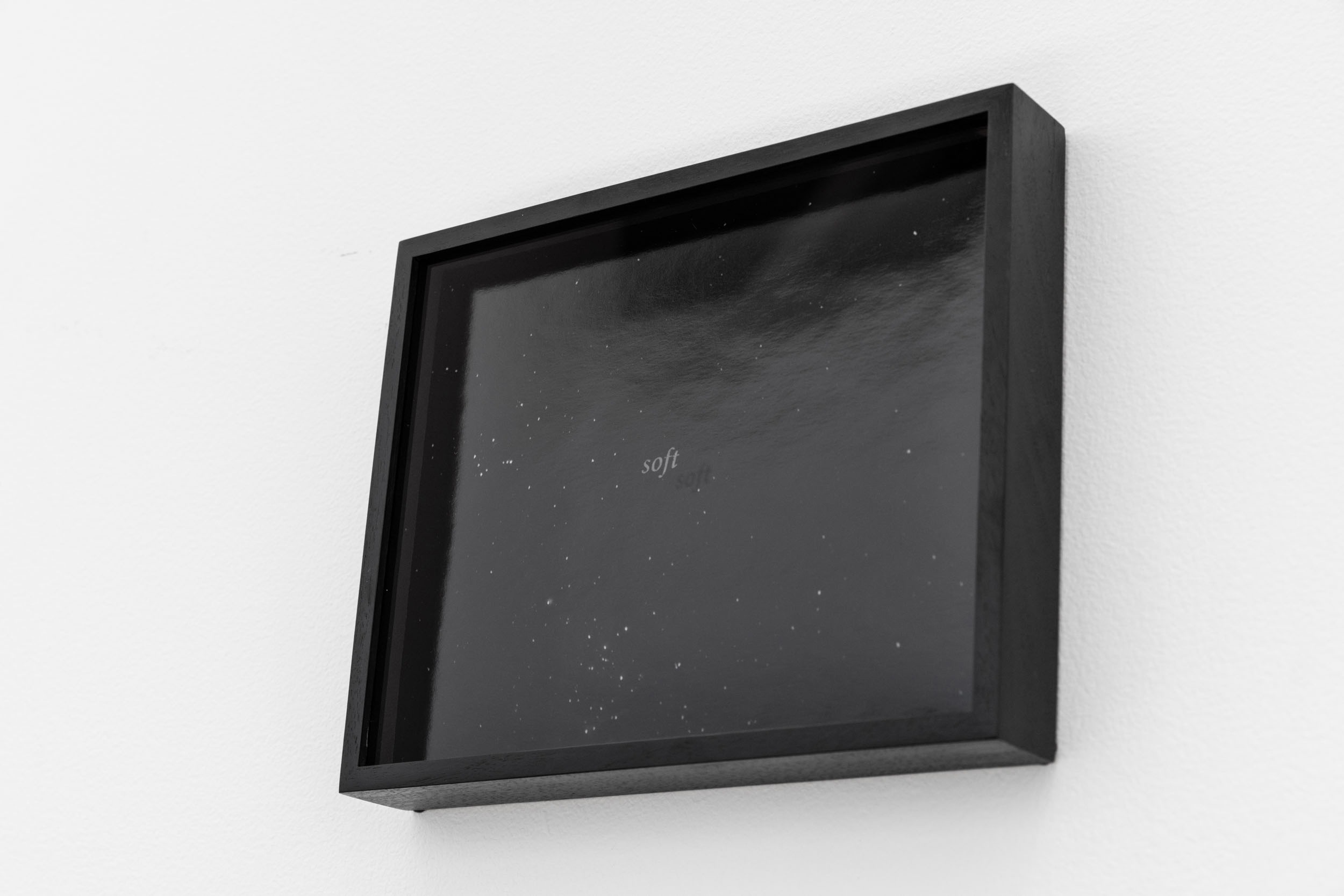
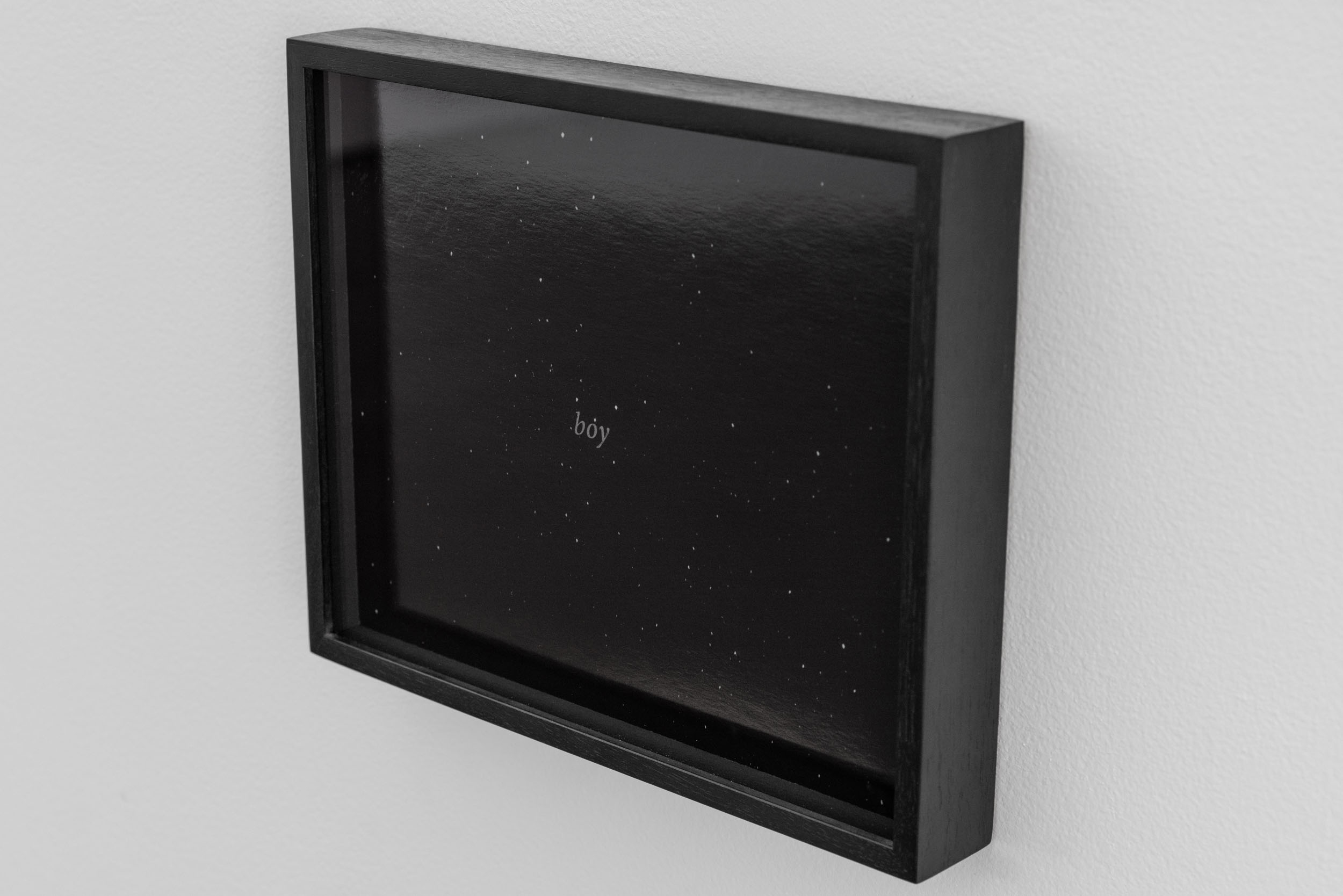
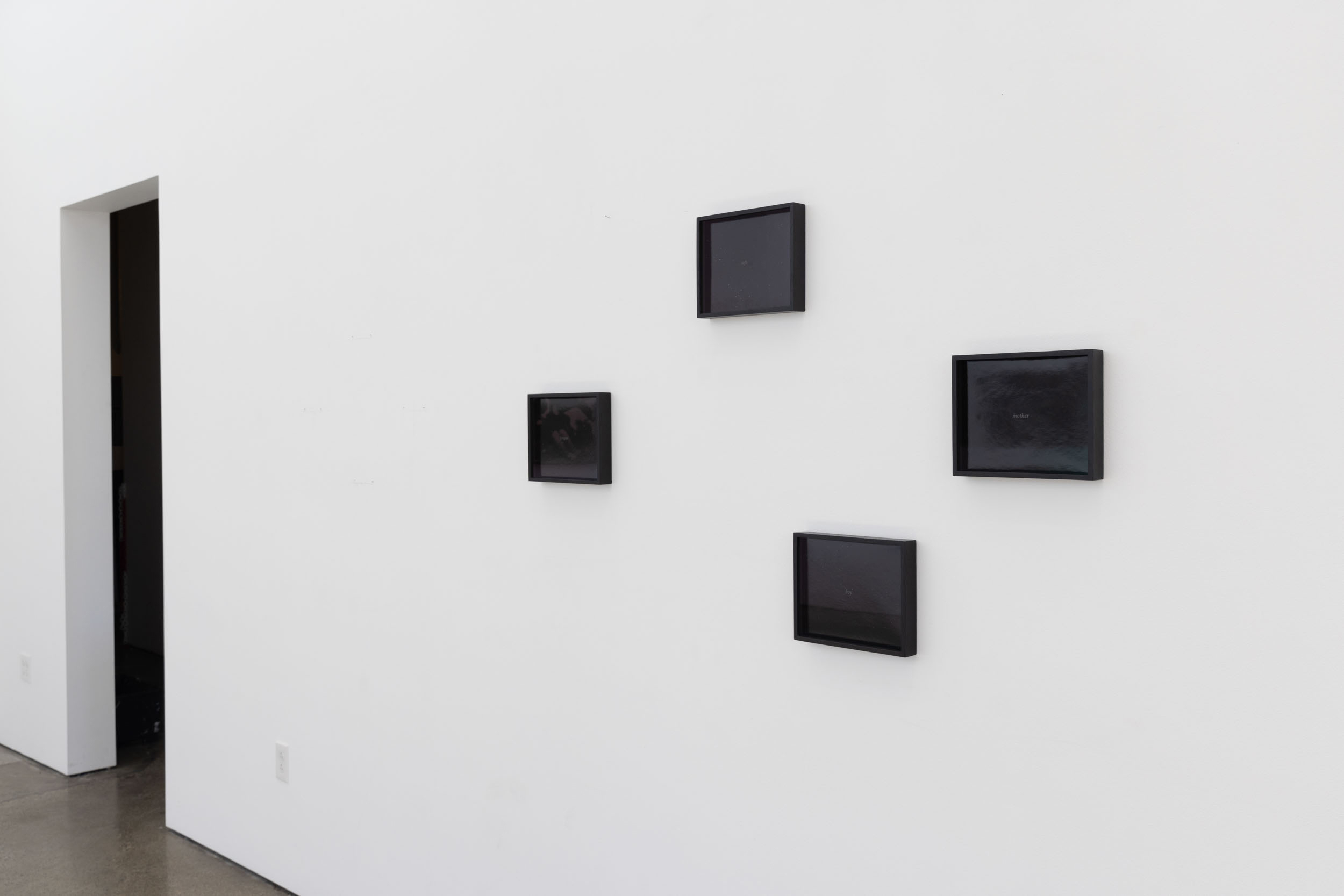
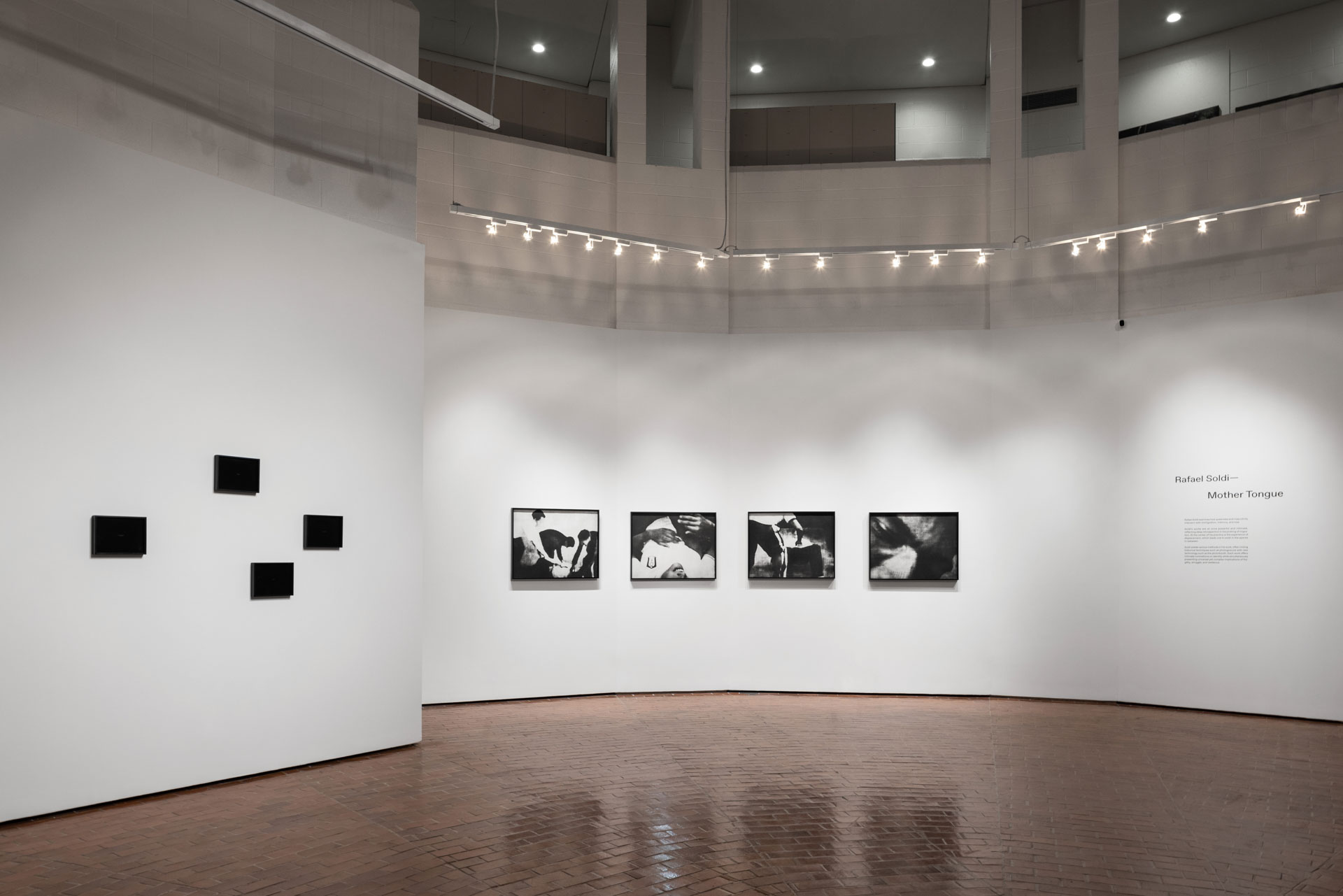
STATEMENT
The fluid and abstract nature of language speaks to both the migrant and the queer experience. Language itself is migrant; it transcends borders, it mutates, changes, and queers itself. Words can define, reveal, and dovetail, as much as they can blur, becloud, and unravel. I’m interested in the critical role that language plays in identity formation, especially for those who exist on the margins.
In this four-paneled work, a single word is etched onto each pane of glass, hovering over a night sky: mother, boy, tongue, soft. By creating an open-ended word matrix, the viewer’s psyche is invited to activate the work. Different combinations of these words can be formed, and how the viewer might link them together is informed by the nuances of their own identity. Mother Tongue, Soft Boy, Mother Boy, Soft Mother, or Soft Boy Tongue, for example, are all language formations that may be interpreted in turns as poetic and beautiful, erotic or humorous, offensive or uncomfortable, or even grotesque. How does one’s own relationship to bodies, to identity, and to sexuality inform the way we align ourselves with language?
Behind the etched glass appear four gelatin silver prints. These photographs were made at the space observatory in Lima, Perú. The images depict the stars as they appeared over my mother the night she gave birth to me. The title, Shards, is borrowed from a poem by Jay Hopler, titled family astrology. The first line of the poem reads, those aren’t stars, those are shards of my mother’s bone.
Curator Amy Galpin writes, “Soldi recently recognized the slow vanishing of his Spanish, his own ‘mother tongue,’ after living in the U.S. for twenty years. The term ‘soft boy,’ too, is one that the artist now recognizes as an apt description for his sensitive and introspective approach to childhood, as opposed to a more physical and unruly disposition.” Language has become a powerful tool to cristalyze my identity, and yet the same words can unravel it in someone else’s imagination. This precarity is what attracts me to investigating language as a parallel for the fluid nature of the human condition.
In this four-paneled work, a single word is etched onto each pane of glass, hovering over a night sky: mother, boy, tongue, soft. By creating an open-ended word matrix, the viewer’s psyche is invited to activate the work. Different combinations of these words can be formed, and how the viewer might link them together is informed by the nuances of their own identity. Mother Tongue, Soft Boy, Mother Boy, Soft Mother, or Soft Boy Tongue, for example, are all language formations that may be interpreted in turns as poetic and beautiful, erotic or humorous, offensive or uncomfortable, or even grotesque. How does one’s own relationship to bodies, to identity, and to sexuality inform the way we align ourselves with language?
Behind the etched glass appear four gelatin silver prints. These photographs were made at the space observatory in Lima, Perú. The images depict the stars as they appeared over my mother the night she gave birth to me. The title, Shards, is borrowed from a poem by Jay Hopler, titled family astrology. The first line of the poem reads, those aren’t stars, those are shards of my mother’s bone.
Curator Amy Galpin writes, “Soldi recently recognized the slow vanishing of his Spanish, his own ‘mother tongue,’ after living in the U.S. for twenty years. The term ‘soft boy,’ too, is one that the artist now recognizes as an apt description for his sensitive and introspective approach to childhood, as opposed to a more physical and unruly disposition.” Language has become a powerful tool to cristalyze my identity, and yet the same words can unravel it in someone else’s imagination. This precarity is what attracts me to investigating language as a parallel for the fluid nature of the human condition.
La naturaleza fluida y abstracta del lenguaje se asemeja tanto a la experiencia de los inmigrantes como a la de las personas queer. El lenguaje en sí mismo migra, sobrepasa fronteras, muta, cambia, se queeriza. Las palabras pueden definir, revelar y articular, pero también difuminar, oscurecer y desmoronar. Me interesa el papel fundamental que el lenguaje desempeña en la formación de la identidad, en especial para quienes existen en los márgenes.
En esta obra de cuatro paneles, cada hoja de vidrio lleva grabada una única palabra que flota sobre un cielo nocturno. Mother, boy, tongue, soft (madre, niño, lengua, suave, en inglés) crean una matriz abierta de palabras que invita al espectador a activar la obra formando con ellas distintas combinaciones. La manera de combinar las palabras dependerá de los matices que presente la identidad del propio espectador. Por ejemplo, Mother Tongue (lengua materna), Soft Boy (niño delicado), Mother Boy (niño de mamá), Soft Mother (mamá blanda) o Soft Boy Tongue (lengua suave de niño), son todas formaciones lingüísticas que pueden interpretarse a su vez como poéticas y hermosas, eróticas o graciosas, ofensivas o incómodas, o incluso grotescas. ¿De qué manera la propia relación con los cuerpos, con la identidad y con la sexualidad condiciona la manera en que nos relacionamos con el lenguaje?
Detrás del vidrio grabado se presentan cuatro impresiones en gelatina de plata. Estas fotografías se tomaron en el observatorio espacial de Lima, Perú. Las imágenes muestran la disposición de las estrellas en el cielo la noche en que mi madre me trajo al mundo. El título, Shards (Esquirlas), se tomó prestado de un poema de Jay Hopler titulado Astrología familiar. El primer verso del poema dice: “esas no son estrellas, sino esquirlas de los huesos de mi madre”.
La curadora Amy Galpin escribió: “Soldi ha reconocido recientemente la lenta desaparición de su español, de su propia ‘lengua madre’, tras veinte años viviendo en Estados Unidos. La frase ‘niño suave’ es también una combinación que el artista hoy reconoce como una descripción adecuada de su carácter sensible e introspectivo en la niñez, en lugar de ser más físico y rebelde”. La lengua se ha convertido en una poderosa herramienta con la que cristalizar mi identidad y, sin embargo, esas mismas palabras pueden desmoronarla en la imaginación de otra persona. Es esa precariedad lo que me lleva a investigar la lengua como fuerza paralela a la naturaleza fluida de la condición humana
En esta obra de cuatro paneles, cada hoja de vidrio lleva grabada una única palabra que flota sobre un cielo nocturno. Mother, boy, tongue, soft (madre, niño, lengua, suave, en inglés) crean una matriz abierta de palabras que invita al espectador a activar la obra formando con ellas distintas combinaciones. La manera de combinar las palabras dependerá de los matices que presente la identidad del propio espectador. Por ejemplo, Mother Tongue (lengua materna), Soft Boy (niño delicado), Mother Boy (niño de mamá), Soft Mother (mamá blanda) o Soft Boy Tongue (lengua suave de niño), son todas formaciones lingüísticas que pueden interpretarse a su vez como poéticas y hermosas, eróticas o graciosas, ofensivas o incómodas, o incluso grotescas. ¿De qué manera la propia relación con los cuerpos, con la identidad y con la sexualidad condiciona la manera en que nos relacionamos con el lenguaje?
Detrás del vidrio grabado se presentan cuatro impresiones en gelatina de plata. Estas fotografías se tomaron en el observatorio espacial de Lima, Perú. Las imágenes muestran la disposición de las estrellas en el cielo la noche en que mi madre me trajo al mundo. El título, Shards (Esquirlas), se tomó prestado de un poema de Jay Hopler titulado Astrología familiar. El primer verso del poema dice: “esas no son estrellas, sino esquirlas de los huesos de mi madre”.
La curadora Amy Galpin escribió: “Soldi ha reconocido recientemente la lenta desaparición de su español, de su propia ‘lengua madre’, tras veinte años viviendo en Estados Unidos. La frase ‘niño suave’ es también una combinación que el artista hoy reconoce como una descripción adecuada de su carácter sensible e introspectivo en la niñez, en lugar de ser más físico y rebelde”. La lengua se ha convertido en una poderosa herramienta con la que cristalizar mi identidad y, sin embargo, esas mismas palabras pueden desmoronarla en la imaginación de otra persona. Es esa precariedad lo que me lleva a investigar la lengua como fuerza paralela a la naturaleza fluida de la condición humana